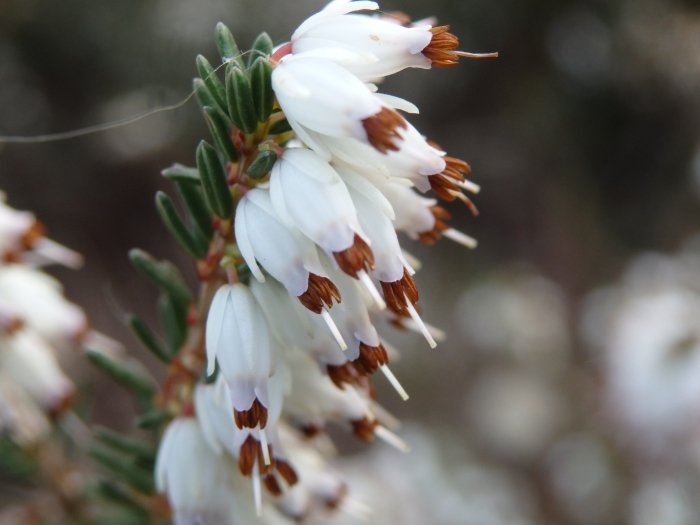Irish Heath
(Erica erigena)
Irish Heath (Erica erigena)
/
/

Carminda Santos
CC BY 4.0
Image By:
Carminda Santos
Recorded By:
Copyright:
CC BY 4.0
Copyright Notice:
Photo by: Carminda Santos | License Type: CC BY 4.0 | License URL: http://creativecommons.org/licenses/by/4.0/ | Rights Holder: Carminda Santos | Publisher: iNaturalist | Date Created: 2021-02-15T17:51:58-08:00 |

























Estimated Native Range
Summary
Erica erigena, commonly known as Irish Heath, is a compact evergreen shrub that typically grows up to 30 inches tall and wide. It is characterized by its deep pink, honey-scented flowers that bloom in winter and spring, adding color and fragrance to the garden during the cooler months. The flowers are particularly showy, attracting pollinators such as bees. Native to the coastal regions of western Europe, including Ireland, southwestern France, Spain, Portugal, and Tangier, Irish Heath naturally occurs on cliffs and in heathland environments where it is exposed to the full sun and well-drained, acidic soils.
Irish Heath is valued for its winter and spring interest, low maintenance, and suitability for growing in rock gardens, as ground cover, or among dwarf conifers. It thrives in open sunny sites and requires well-drained, acidic soil to flourish. While it is drought-tolerant once established, it benefits from regular watering during prolonged dry periods. Numerous garden cultivars offer a variety of sizes and flower colors, with several having received the Royal Horticultural Society’s Award of Garden Merit, indicating their exceptional performance in gardens. Some popular cultivars include ’W.T. Rackliff’, with its bright pink flowers, and ’Golden Lady’, known for its yellow foliage. Potential problems include root rot in poorly drained soils and susceptibility to pests like vine weevil. It is also important to protect it from harsh winter winds.CC BY-SA 4.0
Irish Heath is valued for its winter and spring interest, low maintenance, and suitability for growing in rock gardens, as ground cover, or among dwarf conifers. It thrives in open sunny sites and requires well-drained, acidic soil to flourish. While it is drought-tolerant once established, it benefits from regular watering during prolonged dry periods. Numerous garden cultivars offer a variety of sizes and flower colors, with several having received the Royal Horticultural Society’s Award of Garden Merit, indicating their exceptional performance in gardens. Some popular cultivars include ’W.T. Rackliff’, with its bright pink flowers, and ’Golden Lady’, known for its yellow foliage. Potential problems include root rot in poorly drained soils and susceptibility to pests like vine weevil. It is also important to protect it from harsh winter winds.CC BY-SA 4.0
Plant Description
- Plant Type: Shrub
- Height: 1.5-6 feet
- Width: 1.5-6 feet
- Growth Rate: Moderate
- Flower Color: Pink, Purple, White
- Flowering Season: Winter, Spring
- Leaf Retention: Evergreen
Growth Requirements
- Sun: Full Sun, Part Shade
- Water: Medium
- Drainage: Medium, Fast
Common Uses
Bank Stabilization, Bee Garden, Bird Garden, Border Plant, Butterfly Garden, Deer Resistant, Drought Tolerant, Groundcover, Low Maintenance, Rock Garden, Showy Flowers
Natural Habitat
Native to coastal regions and heathlands of western Europe
Other Names
Common Names: Tall Spring Heath, Mediterranean Heath, Urze
Scientific Names: , Erica erigena, Carduus ×stangii subsp. occidentalis, Erica carnea subsp. mediterranea, Erica carnea subsp. occidentalis, Erica carnea var. occidentalis, Erica erigena f. alba, Erica erigena f. alba, Erica herbacea subsp. occidentalis, Erica hibernica
GBIF Accepted Name: